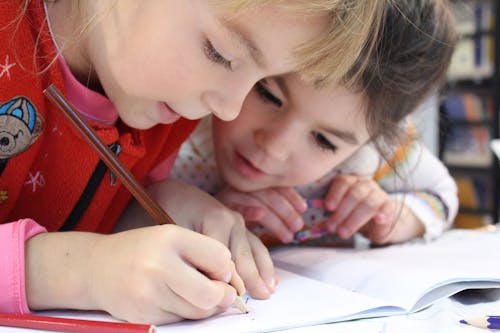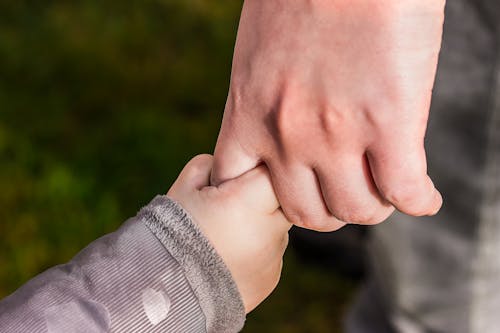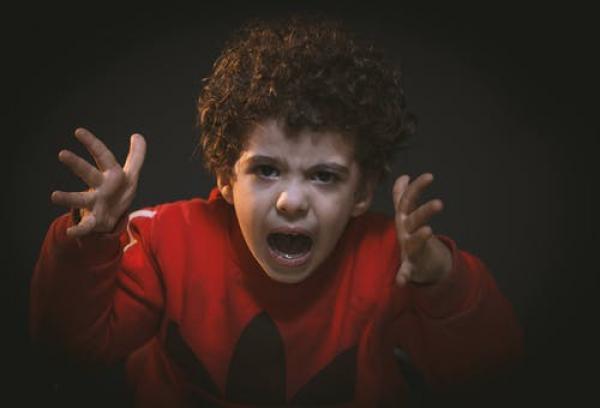Lot’s of parents have been noticing that their children have been acting out, don’t seem themselves and have been emotionally stressed since the pandemic began. From toddlers to teenagers, there’s been a noticeable change in behaviour and can we blame them? This is a stressful time for everyone, not just adults, everyone’s lives have been disrupted in one way or another, so it’s no surprise that parents are noticing some children even seem to have taken a step backwards in their development.
If that’s something that has occurred to you, you’re not imagining it. UNICEF have consulted an expert on the issue of pandemic-induced child regression to answer parent’s questions and concerns about their children in this trying and tumultuous time.
Nancy Close PHD , is an Assistant Professor at the Yale Child Study Center; Associate Director of the Yale Program in Early Childhood Education; Lecturer in Psychology and the Clinical Director of the MOMS Partnership® and the Yale Parent and Family Development Program. She is a mother of two and grandmother of two and she has some great advice about how to get through this challenging time for both you and your child.

Children are naturally eager to develop but learning all of these new skills can cause pressure and this pressure can sometimes cause some of these skills to take a temporary step back in development – this is called regression. The world that Covid-19 has created means that this problem has become more common. With the massive disruption of routine, socialising and everyday life where life skills can be picked up, there is going to be consequences. UNICEF tells parents that lots of children are having difficulty with skills you may have tough they had mastered; toilet training and sleeping, and difficulties managing their feelings of anger, sadness and anxiety. And not just in young children either. This is an issue affecting young people well into their teens too.
Close laid out the kinds of regressions she has seen happening to children and teens during the pandemic and explains that it’s their way of coping with stress and expressing strong feelings that they may not necessarily have the words for. Typical issues at the moment are ‘children regressing through using baby talk, needing help with routines, needing help with sleeping and toileting’. Close explained that even as adults when we experience stress, we can regress into emotional outbursts and that it’s a developmental phenomenon that affects children and adults alike.
‘We’re also seeing a lot of behavioural challenges. We notice children getting really sad over not being with their friends or their teachers and demonstrating exaggerated emotions and behaviours around the shifting in what school looks like. All of these uncertainties are so much more prevalent and so much more frustrating because we are all striving to reach something that is normal and predictable. We are discovering that consistency and predictability have been more difficult to achieve during COVID-19. This can lead children to feel anxious and frustrated which can certainly result in behavioural dysregulation.’
But how can parents help our children and particularly our teens with this behavioural dysregulation, when it’s something that we thought they should have mastered by now? It seems much more daunting to understand why a teen is having a meltdown than a toddler.

Close says that it’s important to understand why that emotion or feeling was linked to whatever problem they were facing. Look at the connections between the feeling and the tantrum – anger, sadness, anxiety. Teenagers naturally seek independence so that is why the teenage years are already a challenging time. But throw in a pandemic on top of it, and it gets a whole lot more challenging for them.
‘Support them to figure out ways to regulate their emotions – going for a walk, running, deep breathing, drawing, painting. Find ways for them to be in touch with friends and family.’
For children who are wetting the bed, Close says it’s a typical regression that is often linked to anxiety about changes in the home or school. Some tips are to support their independence with things like dressing themselves, handwashing, and age-appropriate household chores. It allows their sense of competence and self esteem to grow with can help them to master the problem.
Close stresses the importance of parents and caregivers managing their own wellbeing – mental and emotional – is essential to their child’s wellbeing. Virtual work and online school are major stressors in the home right now, so learning how to handle the stress of online work means you’ll have more patience and emotional availability to help with online school.

‘Parental guilt has intensified during COVID. Parents are concerned about their children’s social isolation. They worry about their children’s social skills, play opportunities and their learning. Children have great antenna for their parents’ worries, so sometimes giving voice to that is reassuring to your children. Let children know what you are feeling worried about in a developmentally appropriate way, such as: “This is hard for mommy and daddy too and we’re trying to do our very best to help you learn and play the best way we can.”’
‘Parents are feeling very alone during these difficult times. Many find it helpful to hear that other parents are feeling the same way as they are. Parents feel comforted in knowing they’re not alone, but the stress and anxiety can quickly return when children are not doing the work that the teacher sent, not listening to the virtual lessons and maybe even refusing to attend virtual school. I do not have a magic solution here. Just know you are not alone, and you are going to feel helpless, frustrated, guilty and worried. It is really hard.’
‘Hang in there! We’re all doing the best we can. Not everyone parents in the same way, so do not compare yourself to other parents or your children to other children. You know what your values are, you know what you want for your children. We’re doing what we need to get through this.’









